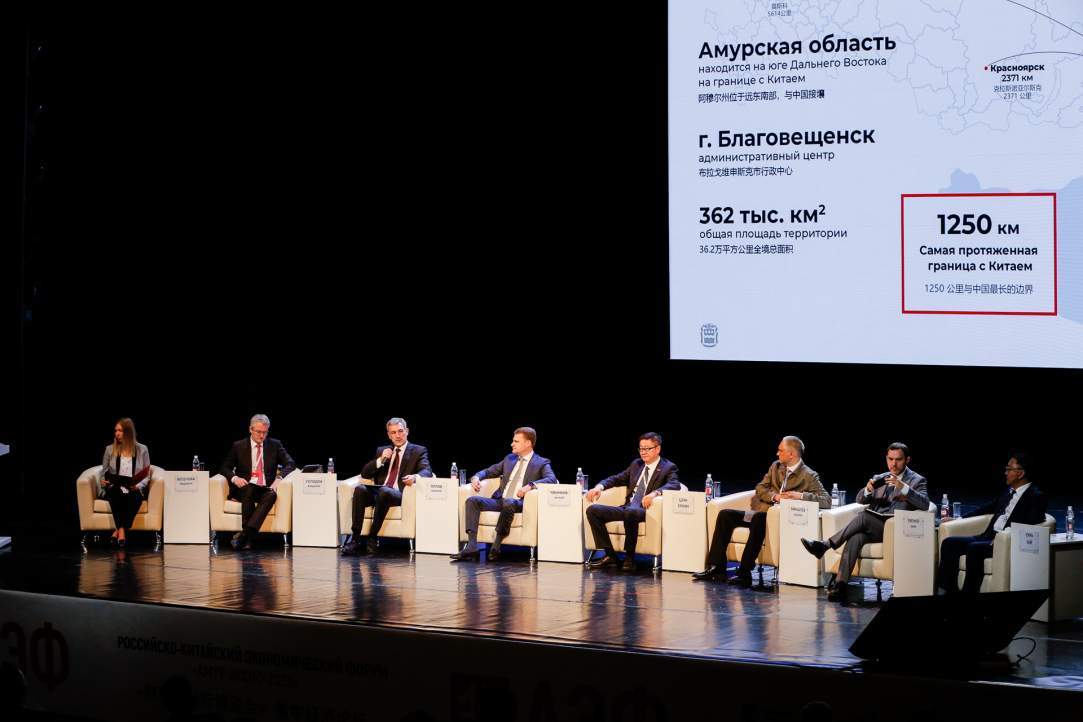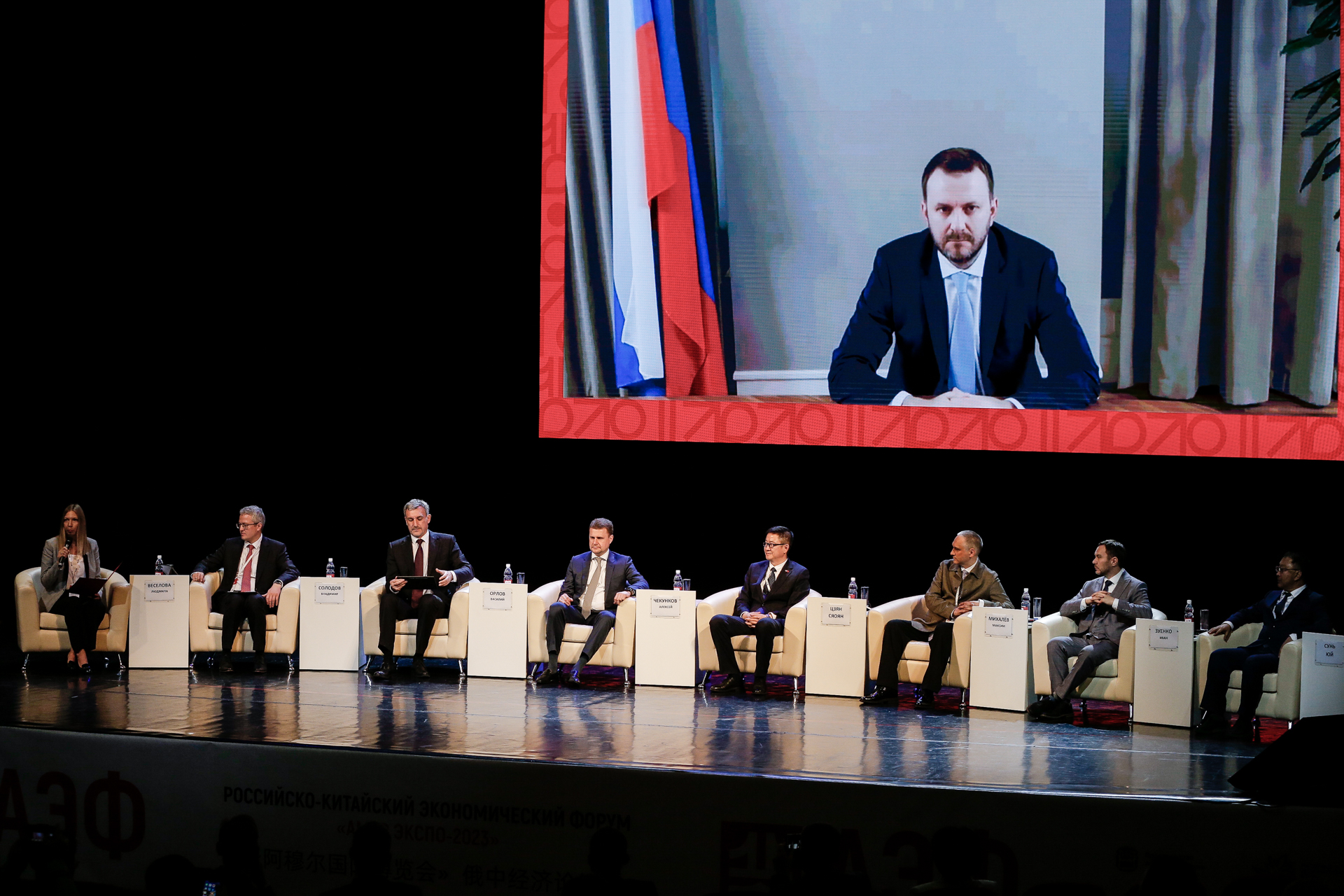Amur Expo Forum: Discussing a New Stage of Russian-Chinese Cooperation
Liudmila Veselova, Academic Supervisor of the Master's programme 'International Business in the Asia-Pacific Region', took part in the Amur Expo Forum.

On May 26–28, Blagoveshchensk hosted the main event in the business life of Russian Manchuria: the Russian-Chinese economic forum 'AmurExpo'. This year's forum also served as a visiting area for the Eastern Economic Forum (EEF). The business programme was put together by the Ministry for the Development of the Russian Far East and Arctic, the Russian Far East and Arctic Development Corporation, and the Roscongress Foundation. This year, the event attracted even more attention than usual due to the opening of borders with China and a new stage of Russian-Chinese cooperation. Among the 2,600 guests of the forum were government representatives and experts from China, Pakistan and India.
One important event was the visiting EEF session 'The Far East and China: International Territories of Advanced Development—Prospects and Opportunities for Cooperation'. The session also featured the opening of the Kanikurgan Customs and Logistics Terminal (CLT), which is set to become a significant infrastructure facility. Last year, an international road bridge over the Amur River between Blagoveshchensk and Heihe was opened. The Kanikurgan terminal, which is located near the 'Amurskaya' territory of advanced socio-economic development, will help to speed up the arrival and processing of goods from China. The Kanikurgan CLT has several advantages, including a higher throughput. This enhances the competitiveness of products from the Amur region and the Far East and creates a new supply route to the countries of the Asia-Pacific region. During the forum, the participants also discussed other promising infrastructure projects to be implemented in the future, including the Jalinda-Mohe railway bridge and an international territory of advanced development.
All of the events in the programme covered urgent problems in Russian business, which is currently in a difficult situation. The forum hosted a roundtable on 'Import Phaseout and Parallel Import under the New Economic Conditions' and a panel discussion on 'Legal Aspects of Business with Chinese Economic Actors'. Participants of the roundtable discussed the prospects of developing trade with Asian countries. Some experts drew attention to the increased trade not only with China, but also Indonesia and Pakistan. At the panel discussion, the experts talked about the most frequently made legal mistakes which Russian entrepreneurs have to face when working with China.
The key event of the forum was the plenary session 'Russian-Chinese Economic Cooperation at a New Stage: Bridge to the Future', where one of the speakers was Liudmila Veselova, Academic Supervisor of the Master's programme 'International Business in the Asia-Pacific Region' and 'Business and Politics in Modern Asia'. The plenary session was opened by Maksim Oreshkin, Assistant to the Russian President, and among the honoured speakers were Alexey Chekunkov, Minister for the Development of the Russian Far East and Arctic; Nikolay Kharitonov, Chairman of the Committee of the Russian State Duma for the Development of the Far East and the Arctic; Jiang Xiaoyang, Chinese Consul-General in Khabarovsk; Vasily Orlov, Governor of the Amur Region; and Vladimir Solodov, Governor of the Kamchatka Territory.

The participants discussed how to effectively utilise the huge potential of the unique geographical location of Russian Manchuria, as well as the obstacles to successful work between Russian and Chinese businesses. Implementing all of these future projects and expanding cooperation with Asian partners requires talented personnel, noted Liudmila Veselova in her speech. She added that now is the time for close Russian-Chinese cooperation not only in economics, but also in education and science. This could become another 'bridge' to enhance the partnership between the two countries.
Special attention was given to the environmental agenda, as the majority of Far Eastern regions have unique ecosystems. Several projects currently underway are aimed at maintaining and developing the ecosystem of Kamchatka. They include plans to build and upgrade fish-processing plants to provide more regions with such goods. The ESG agenda was another major topic. During the session, the participants were presented with the general plans for the development of the large-scale 'Three Volcano Park' project, which aims to set a new standard for diversified tourism and recreational clusters.

